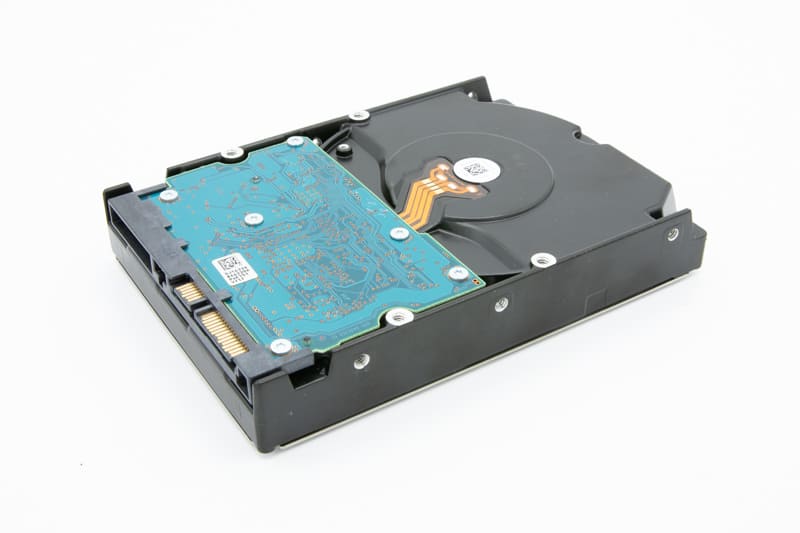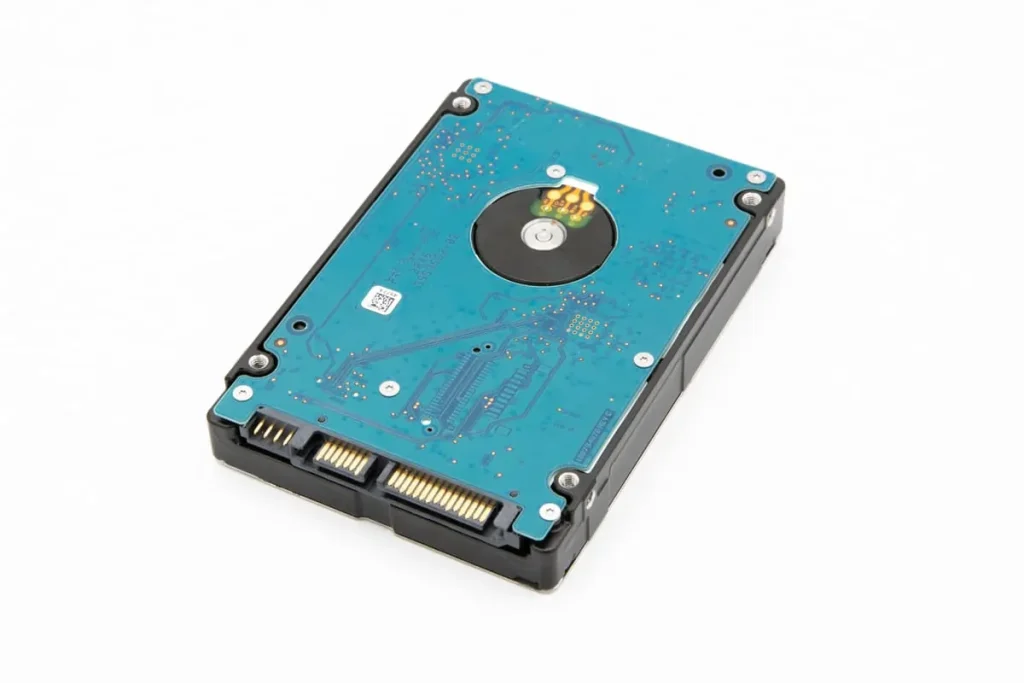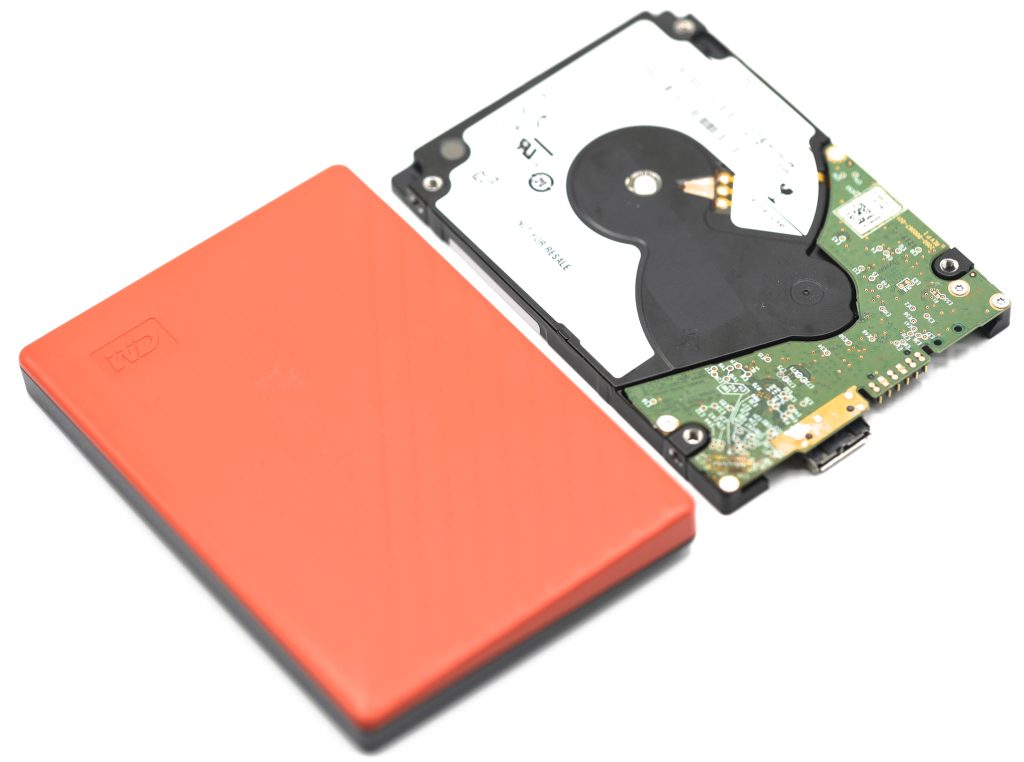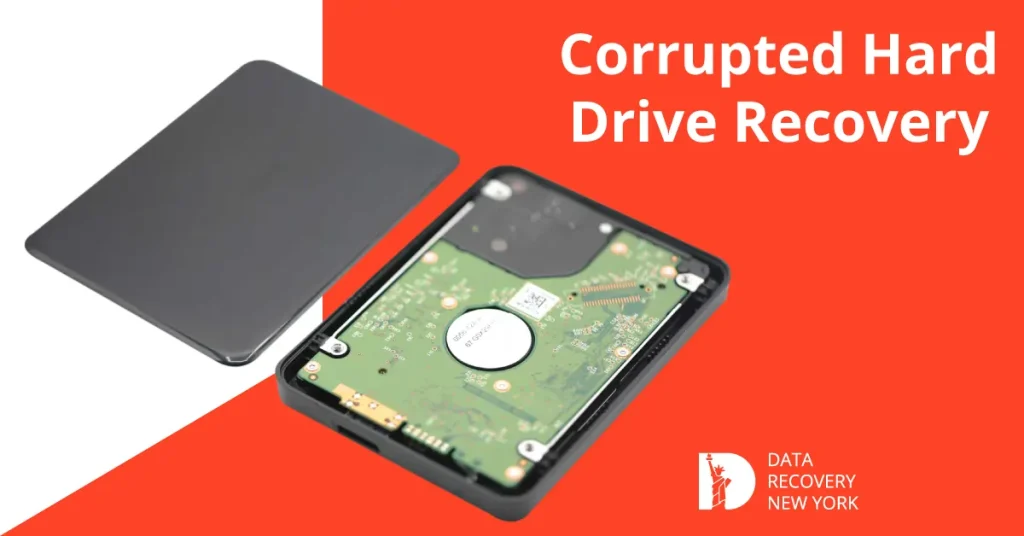Data plays a critical role in personal and professional life. Dealing with a corrupted hard drive is a nightmare, losing important documents, photos, and business data. Understanding the causes and recovery processes is crucial. This blog clarifies hard drive corruption, common data loss causes, and recovery solutions. Drawing from our experience at Data Recovery New York, we guide you in safeguarding data and recovering files effectively.
Common Causes of Corrupted Hard Drives
In a data-driven era, storage device integrity is crucial. A corrupted hard drive blocks vital information access, risking data loss. This document delves into the causes of common hard drive corruption, from physical damage to malware. Understanding these factors is crucial for data loss prevention and digital longevity. Dive into hard drive corruption with us, uncover data damage causes, and explore recovery solutions.
Power Failure
Power failures or surges are common culprits behind hard drive corruption. Sudden loss of power or electrical spikes can disrupt the normal functioning of the hard drive, leading to data corruption or loss.
Virus or Malware Infections
Malicious software, such as viruses and malware, can infiltrate and damage the file system of a hard drive. These unwelcome intruders can modify, delete, or encrypt files, rendering them inaccessible.
Physical Damage
Dropping or bumping a hard drive can generate physical damage to its internal components. Physical impacts can misalign the read/write heads, scratch the platters, and lead to data corruption.
File System Errors
Errors inside the file system, often caused by improper shutdowns, software crashes, or unsafely disconnecting storage devices, can lead to a corrupted hard drive. These errors disrupt the structure and logic of the file system, making data retrieval a challenge.
Software Conflicts
Installing incompatible software or drivers can lead to system conflicts and errors that corrupt the hard drive. These conflicts interfere with the normal operation of the hard drive, potentially corrupting the stored data.
Bad Sectors
Bad sectors are zones of the hard drive that have been damaged and can no longer be used. Physical damage, prolonged usage, or manufacturing defects can cause bad sectors. Many bad sectors can corrupt a hard drive, affecting its ability to read and write data efficiently.
Signs of Corrupted Hard Drive
Identifying the early signs of a corrupted hard drive can save crucial data from being lost irretrievably. Identifying the early signs of a corrupted hard drive can save crucial data from being lost irretrievably. In today’s digital age, our lives are stored and managed on electronic devices, making data recovery a critical service in case of any hardware failure. Here are some frequent symptoms to watch out for:
Frequent Crashes or Blue Screens
One of the most glaring signs of a corrupted hard drive is the computer frequently crashing or displaying a blue screen of death (BSOD). These crashes occur during the boot or while attempting to access specific files or applications.
Files Disappearing or Becoming Corrupted
If files suddenly start disappearing or fail to open, showing error messages instead, it’s a strong indicator of corruption within the hard drive. Corruption can make the files unreadable or completely inaccessible.

Sluggish Performance and Slow Access Times
A marked decrease in system performance, especially when accessing or transferring files, can signal a corrupted hard drive. This sluggishness often results from the drive struggling to read or write data correctly.
Strange Noises
Unusual sounds emanating from the hard drive, such as clicking, grinding, or whirring noises, are red flags. These sounds can indicate physical damage to the drive’s components, often leading to corruption.
Frequent Error Messages
Encountering repeated error messages when trying to perform basic operations, such as saving a file or opening a folder, can suggest issues with the hard drive. Errors related to file system corruption are particularly indicative of a deeper problem.
Preventing Hard Drive Corruption
Protective measures and regular system checks are paramount to preventing hard drive corruption. One fundamental step is implementing a robust backup strategy. This involves making regular, comprehensive backups of all critical data, ideally storing them in diverse locations such as on an external hard drive and a cloud storage service. This dual-location strategy ensures that the data remains safe and recoverable even if the primary hard drive is corrupted.

Additionally, using uninterruptible power supplies (UPS) can safeguard computers from power surges and outages, protecting the hard drive from potential corruption due to electrical inconsistencies.
Maintaining vigilant cybersecurity practices is crucial to ward off virus or malware attacks, common causes of hard drive corruption. This includes installing reputable antivirus software, updating all software to patch exposures, and practicing safe browsing habits.
On the physical front, handling storage devices with care to prevent shocks and damages and ensuring the computer’s cooling system effectively keeps components at optimal temperatures can mitigate risks of physical damage. Regularly performing disk checks for errors and bad sectors and optimizing the hard drive (especially for HDDs) can also help maintain its health and prevent early corruption. Together, these practices create a comprehensive defense strategy against hard drive corruption.
Managing a Corrupted Hard Drive
When faced with a corrupted hard drive, it’s crucial to assess the situation calmly and determine the best action. Although losing valuable data can be daunting, several steps can be taken to fix or mitigate the damage. First and foremost, it’s essential to stop using the computer immediately to prevent further damage to the data. Continuing to use a computer with a corrupted hard drive can lead to data being overwritten and permanently lost.
One DIY method is to boot the computer in Safe Mode to bypass software conflicts. Use disk repair utilities like Windows’ CHKDSK or macOS’s Disk Utility to fix file system errors. Data recovery software can retrieve data from corrupted sectors. Research and choose reputable software to avoid worsening the issue.
If the corruption results from physical damage or unsuccessful DIY attempts, it is recommended that professional data recovery services be sought. Professionals have the expertise and equipment to recover data from severely damaged drives in a controlled environment.
Although this option can be costly, it’s often the best chance to recover important data from a corrupted hard drive. It is essential to recognize that while DIY recovery techniques may prove useful for minor issues, they can exacerbate the problem if not executed carefully. If the data on the drive is highly valuable or irreplaceable, consulting a professional from the start may be the wisest choice. Always ensure that future data loss risks are minimized by adhering to best practices for data backup and hard drive maintenance.
Corrupted Hard Drive Recovery Process
At Data Recovery New York, we understand the stress and urgency that come with a corrupted hard drive. Our streamlined Corrupted Hard Drive Recovery Process is designed to reassure and support you every step of the way, ensuring that your data is in expert hands.
Shipping Your Device
The first step is getting your corrupted hard drive to our office. To initiate the process, you can either ship your corrupted hard drive to our office or opt for us to provide a shipping label for secure delivery of your device.

Initial Assessment
Upon receiving your device, our team conducts an initial assessment to diagnose the level of corruption and potential for data recovery. This step is critical to formulating a customized recovery plan.
Recovery Process
Once the assessment is complete and you’ve approved the recovery plan, our Data Recovery New York experts will use state-of-the-art tools and techniques to recover your data.
Customer File Verification System
After the recovery, we use our unique Customer File Verification System to ensure the integrity and completeness of the recovered data. This system allows you to verify important files remotely, ensuring that your most critical data has been successfully recovered.
Secure Return
Finally, your data is securely transferred onto a new medium (HDD, SSD, etc.) and shipped back to you. This ensures you receive your data promptly and securely, minimizing downtime and stress.
At Data Recovery New York, our priority is to recover your data and provide a seamless and secure experience from start to finish. Our comprehensive recovery process, flexible shipping options, and Customer File Verification System exemplify our commitment to customer satisfaction and data security.
FAQ - Corrupted Hard Drive
What is a corrupted hard drive?
A corrupted hard drive is a storage device with a malfunction or error in its file system or physical structure, hindering its normal operation. This can occur due to software issues, virus attacks, physical damage, or prolonged wear and tear, resulting in losing access to data stored on the drive.
Can a corrupted hard drive be prevented?
While not all forms of corruption can be wholly prevented, regularly backing up your data, maintaining your operating system with updates and patches, using a surge protector, performing regular disk checks, and being cautious about malware can significantly reduce the risk.
How long does the data recovery process take?
The timeframe for data recovery varies based on the extent of corruption, the volume of data involved, and the workload of the recovery service. Most recoveries are typically completed within several days to a week, although more intricate cases may require additional time.
Is recovering data from a corrupted hard drive expensive?
The data recovery cost can vary widely depending on the extent of the damage, the required recovery techniques, and the case’s urgency. While logical recoveries are generally less expensive, physical recoveries can be more costly due to the complexity and the need for specialized equipment.
Is it always possible to recover data from a corrupted hard drive?
Data recovery services use advanced methods and technologies to recover data from corrupted hard drives. Success depends on damage severity and the cause of corruption. The initial assessment is crucial before proceeding with recovery efforts.

